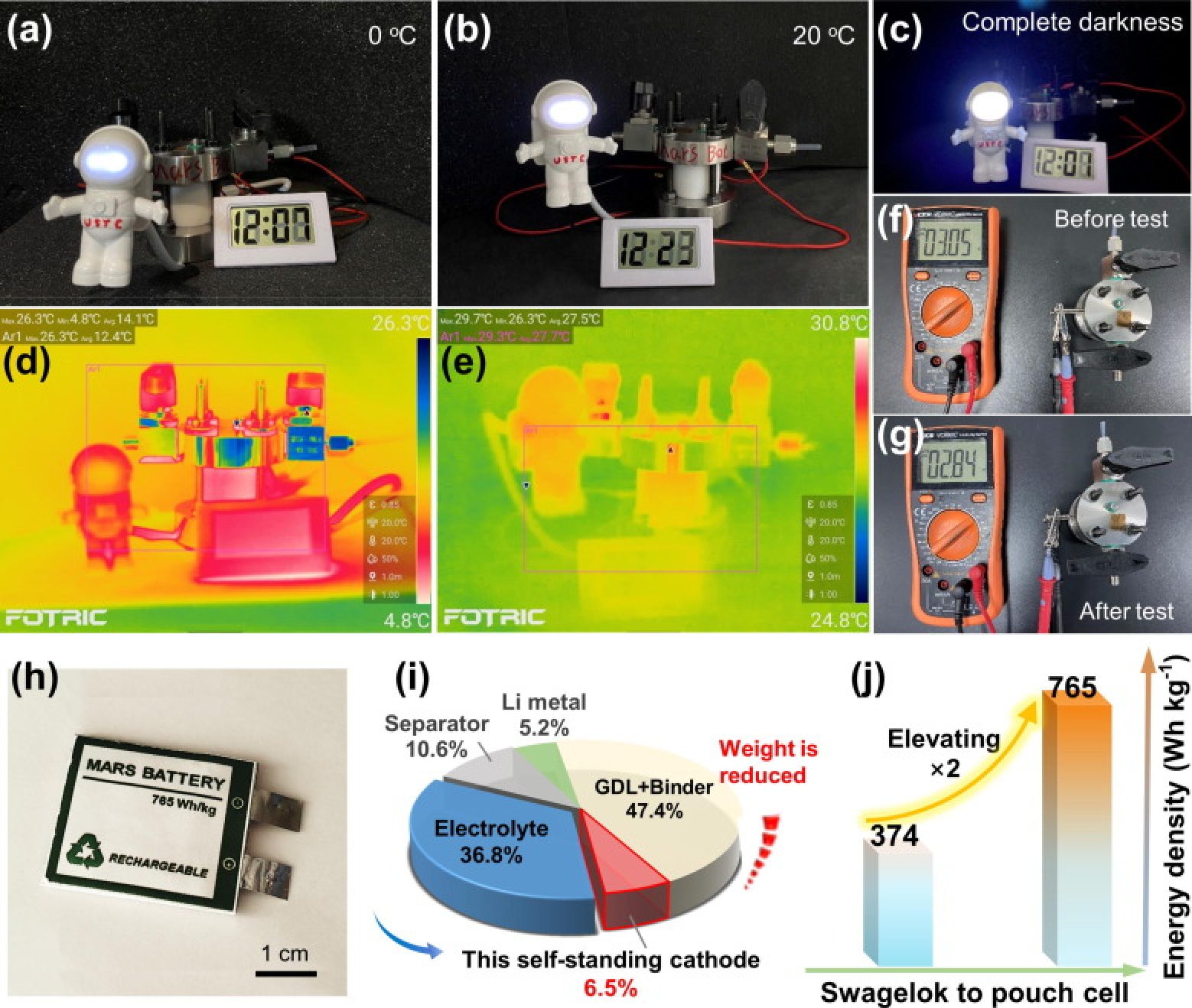The lightweight, rechargeable battery’s design means it operates like a fuel cell and can handle the extreme Martian temperatures. — SCMP
Scientists in China say they have developed a lightweight, rechargeable battery for Mars exploration that could be powered by the Martian atmosphere while withstanding the planet’s extreme temperatures.
The researchers, from the University of Science and Technology of China, said the battery was capable of “direct inhalation of the Mars atmosphere as fuel” during discharge and secondary charging by external solar and nuclear energy sources.
According to the paper published by peer-reviewed journal Science Bulletin, the battery can run for more than 1,350 hours – nearly two Martian months – at 0˚C (32˚F). A day on Mars is around 40 minutes longer than on Earth.
The researchers said they designed the battery so it could operate under the extreme temperature changes on Mars, where day and night can vary by up to 60 degrees.
“We have developed (the) battery for space exploration powered directly by the Mars atmosphere and evaluated the wide-temperature electrochemical performance to suit the serious temperature fluctuations on Mars,” they wrote.
“The development of Mars batteries aims to benchmark the monopolisation of secondary (lithium-ion batteries) carried in exploration devices from the 1997 American Sojourner rover to the 2021 Chinese Zhurong rover.”
Study author Xiao Xu, a postdoctoral researcher at the university in Hefei, Anhui province, southeast China, said the battery operated like a fuel cell, which converts the chemical reactions of an energy source into electricity.
“Just as a hydrogen-oxygen fuel cell uses hydrogen as its fuel to generate energy, the Mars battery takes gases like carbon dioxide, oxygen and carbon monoxide from the Martian atmosphere as its ‘fuel’,” she said.
“The battery produces electrical energy on site using local resources through electrochemical or chemical reactions. This means there is no need to transport fuel to Mars, greatly reducing the weight of the battery.”
When asked about the fate of Zhurong – the Chinese solar-powered rover that is in hibernation on Mars after dust build-up limited the amount of sunlight it could receive – Xiao said solar panels would not be the only way to recharge the new battery.
“Dust build-up on solar panels may not necessarily become a limiting factor for the performance of the Mars battery,” she said.
According to the team, rovers and other exploration equipment on Mars are mainly powered by portable lithium-ion batteries as well as large-scale solar panels and nuclear batteries.
“Rechargeable (lithium-ion batteries) have been applied in almost all Mars rovers and even the first Mars helicopters, which are used in combination with nuclear batteries (for US rovers) Perseverance and Curiosity, or solar panels – for example, Zhurong,” they said.

According to Xiao, exploratory rovers on the red planet will continue to depend on multiple energy sources for their power systems. “The Mars battery does not replace any source – it aims to provide an additional option for power supply.”
Xiao said the team hoped to build on the proof-of-concept study and further develop solid-state Mars batteries, addressing the issue of electrolyte volatilisation at low pressures and supporting thermal and barometric management systems.
The work laid a foundation for complementary multi-energy systems for future space exploration, she said. – South China Morning Post





